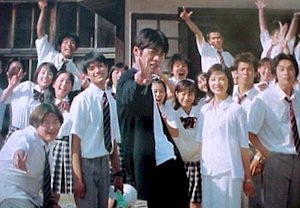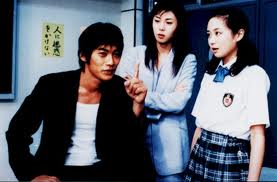Once again, I managed to completely abandon this blog for a seemingly endless period of time. I have some time on my hands now so I thought I’d write a little bit for old time’s sake (and for the learning pleasure of anyone who cares about what I have to say).
I spent the last year or so living with my girlfriend and we speak Japanese at least half of the time. We watch Japanese TV exclusively (we don’t actually have cable; we just use the internet for Japanese variety shows and dramas). We only listen to Japanese music. We eat a ton of Japanese food. For all intents and purposes, we live a Japanese life (we even have those little Japanese slippers from Mujirushi at the door to our apartment).
I feel guilty saying this, but my Japanese study fell to the back burner during all this… OK fine, I just stopped doing it all together. Lack of motivation? Maybe. I lost steam after passing N2. I know I used to talk a lot about studying like a champion and never losing steam and that having motivation was half the battle and you know what…. I was right about all that. There is no great learning experience quite like being on both ends of your own lesson.
I gave myself permission to slack because I have Japanese flying at me from so many directions that I assumed the fluency would just naturally seep in without rigorous study. I was also right about that. Fluency DOES seep in. Literacy, on the other hand, leaks out.
My girlfriend considers me to be basically fluent in Japanese. But in the past year I lost something important: the ability to read a lot of the more complex kanji. When you don’t look at those kanji every day and feed them, bath them, and nurture them like cute fuzzy little gerbils, they will die…. And then you have to go back to the pet store for new gerbils, and those gerbils are just as expensive as the originals and they take just as much time and energy to raise.
So, in retrospect, I can speak Japanese really well now (if I can take a moment to be a little self-appreciative) and I no longer have to struggle or even concentrate to understand naturally spoken Japanese, but I can’t really read a novel any more. I can read manga (that’s basically just colloquial Japanese written in speech bubbles anyway) and I can read anything that might pop up at the bottom of the screen on a variety show. I know just the right Japanese to live and have fun in a world where reading at a high level is not necessary (don’t get too carried away by my self-depreciation here… it’s not like I CAN’T read…)
To sum it all up, fluency can come to you naturally and comfortably and it will hang around for a while as long as you stay immersed. Literacy on the other hand leaks out of your brain like soapy water out of a sponge that is sitting on the kitchen counter. You have to keep the sponge wet if you want to keep cleaning dishes with it.
Epilogue – I hope this post was as fun for you as some of my old ones. It’s been a while, so I’m rusty. Hopefully more to come!







